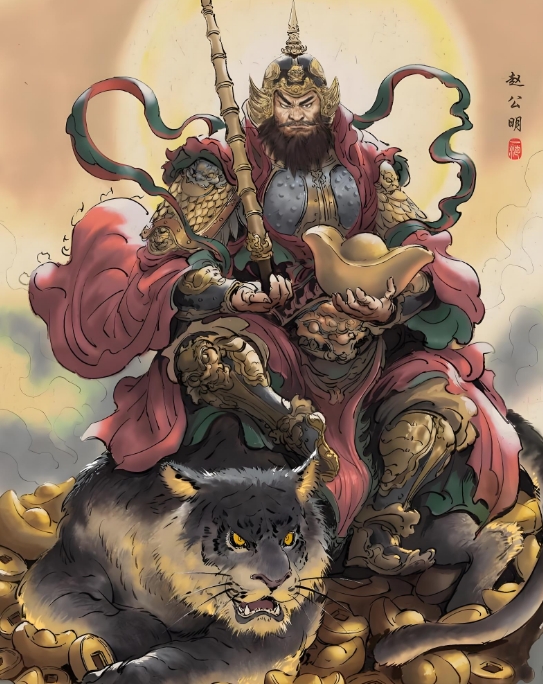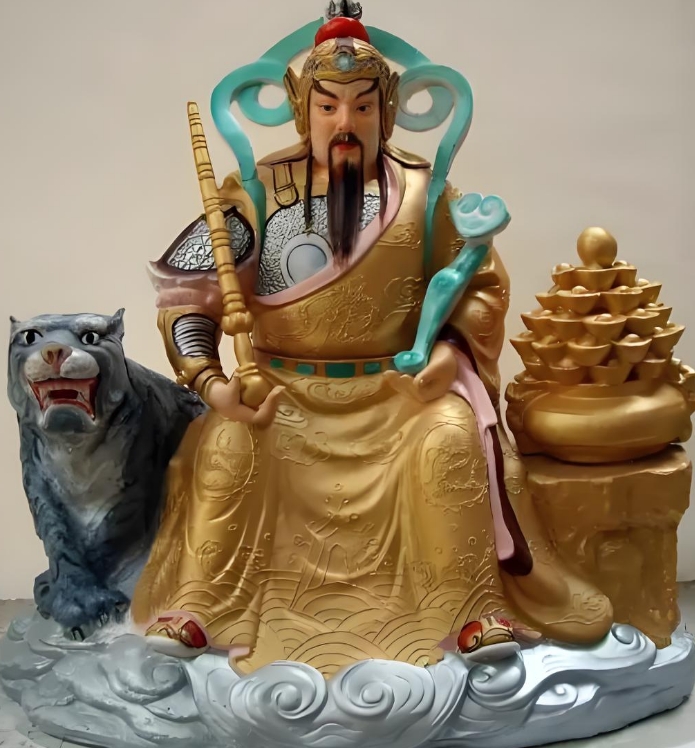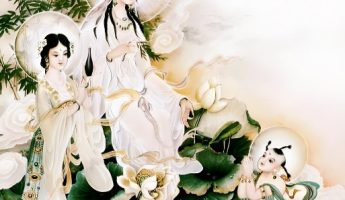In traditional Chinese culture, the God of Wealth is a symbol of wealth and prosperity. Among the many wealth gods, there is a prominent character – Zhao Gongming. He is known as the “Number One God of Wealth in China” and holds an important position in folk beliefs, religion, and cultural arts. This article will take you to a deeper understanding of the historical legends and cultural origins of Zhao Gongming, as well as how he was revered by the people as the guardian of wealth.
The story of Zhao Gongming first appeared in “Fengshen Yanyi”, a novel that describes the period of the transition between the Shang and Zhou dynasties and the enfeoffment of gods by the gods. In the book, Zhao Gongming is a disciple of the Heavenly Emperor of the Yuan Dynasty. He has a strong and decisive personality, possesses powerful magical powers, and is skilled in using magic weapons. Among numerous immortals, he is known as the “God of Wealth” and is responsible for managing wealth and fortune.

The image of Zhao Gongming has undergone historical changes, gradually evolving from a novel character to the god of wealth in folk beliefs. His profile picture is usually that of a middle-aged man, dressed in a gorgeous robe, holding items symbolizing wealth such as gold ingots and dragon head staffs. His golden dragon image has become a highly recognizable symbol.
In traditional sacrificial activities, people usually offer complete offerings during important festivals such as New Year and Spring Festival, in order to receive the blessing of Zhao Gongming. This not only includes gold and silver treasures, but also encompasses various prayers such as family harmony and smooth career. His influence is increasing day by day, gradually becoming the mainstream belief in various places.
There are many legends about Zhao Gongming, the most famous of which is the one in “Fengshen Yanyi” about his confrontation with other immortals. In the story, in order to resist the threat of hostile forces, he is willing to engage in peak battles with various immortals, demonstrating an extraordinary sense of justice.
Zhao Gongming also has many allusions in combating evil and helping ordinary people. For example, there is a legend that Zhao Gongming once saved a businessman who was about to go bankrupt, giving him financial luck and wealth, allowing him to accumulate a huge amount of wealth in a short period of time. Therefore, in folk beliefs, Zhao Gongming is not only a symbol of wealth, but also an embodiment of justice, righteousness, and honesty.

Over time, the worship of Zhao Gongming gradually expanded nationwide, forming a unique belief system. Whether merchants or ordinary people, on the fifth day of the first lunar month every year, they will worship Zhao Gongming in different ways to seek good financial luck.
During the sacrificial process, believers usually prepare rich offerings such as fruits, flowers, candies, etc., and light candles to express their admiration and prayers for Zhao Gongming. In some places, temple fairs are also held to attract a large number of believers to come and pay their respects, creating a lively scene.
Zhao Gongming is not only a god of wealth, but also an important spiritual symbol in Chinese culture. His influence is not limited to religious worship, but also permeates into all aspects of life. In modern society, enterprises often choose to worship Zhao Gongming when opening to express their beautiful expectations for future development.
Zhao Gongming’s cultural value is also reflected in his moral implications. He has established a good image among the people with qualities such as fairness, integrity, courage, and dedication. In many business activities, entrepreneurs also take Zhao Gongming as a model, pursuing not only wealth, but also a sense of responsibility and feedback to society.



